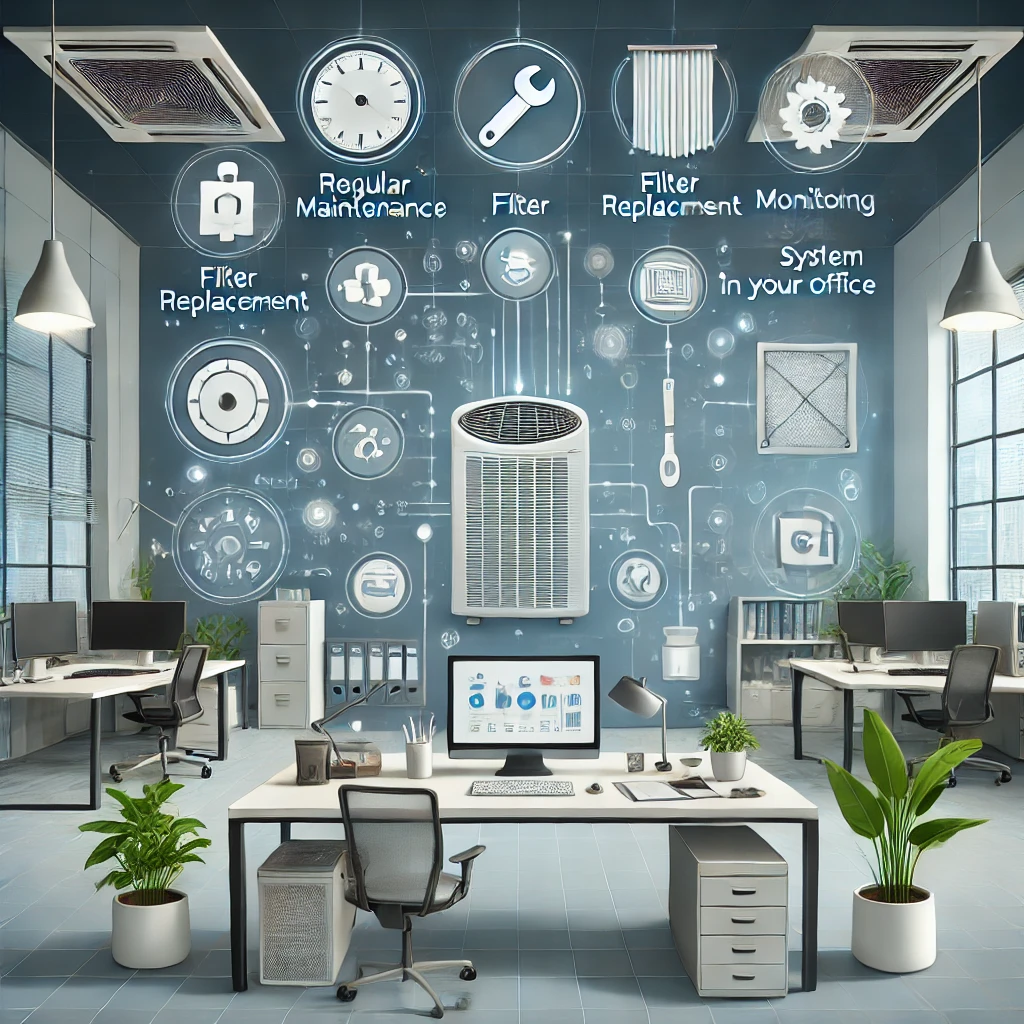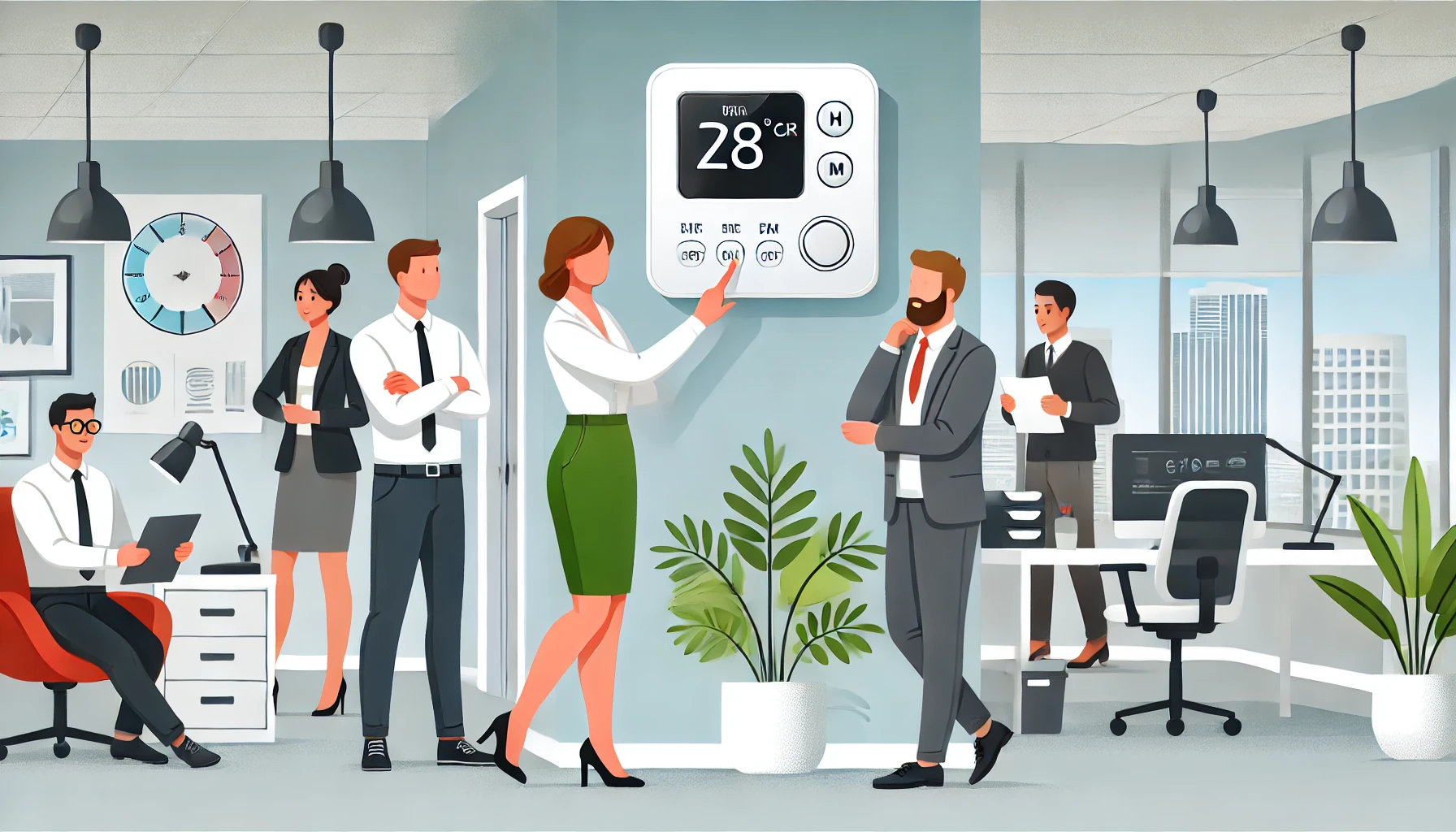Preventing HVAC Failures
in Your Office

HVAC (Heating, Ventilation, and Air Conditioning) systems are crucial for maintaining a comfortable and productive office environment. However, HVAC failures can lead to discomfort, decreased productivity, and costly repairs. This blog post provides practical tips for preventing HVAC failures in your office, ensuring a reliable and efficient system.
Tips for Preventing HVAC Failures
1. Schedule Regular Maintenance
Importance
Regular maintenance helps identify and address potential issues before they become major problems.
Steps
- Hire a Professional: Schedule bi-annual maintenance checks with a licensed HVAC technician.
- Routine Inspections: Conduct monthly visual inspections to check for obvious issues such as leaks or unusual noises.
2. Replace Air Filters Regularly
Importance
Clean air filters ensure proper airflow and prevent the system from working harder than necessary.
Steps
- Monthly Checks: Check air filters every month.
- Replace Every 3 Months: Replace air filters every three months or as recommended by the manufacturer.
3. Monitor Thermostat Settings
Importance
Proper thermostat settings help maintain a consistent temperature and reduce strain on the HVAC system.
Steps
- Set Appropriate Temperatures: Set the thermostat to recommended temperatures for different seasons.
- Use Programmable Thermostats: Install programmable thermostats to optimize heating and cooling schedules.
4. Keep Vents and Ducts Clean
Importance
Clean vents and ducts ensure efficient airflow and reduce the risk of blockages.
Steps
- Regular Cleaning: Schedule professional duct cleaning every few years.
- Inspect Vents: Check vents regularly for dust and debris buildup and clean as needed.

5. Check Refrigerant Levels
Importance
Proper refrigerant levels are essential for efficient cooling and heating.
Steps
- Professional Inspections: Have a professional technician check and top off refrigerant levels during maintenance visits.
- Monitor for Leaks: Be aware of signs of refrigerant leaks, such as a decrease in cooling efficiency or unusual hissing noises.
6. Ensure Proper Insulation
Importance
Good insulation reduces the workload on the HVAC system by maintaining consistent indoor temperatures.
Steps
- Inspect Insulation: Check the insulation in your office’s walls, ceilings, and floors.
- Upgrade Insulation: Add or replace insulation in areas that are under-insulated.
7. Educate Employees
Importance
Employee awareness and cooperation can help maintain the HVAC system’s efficiency.
Steps
- Energy-Saving Practices: Encourage employees to adopt energy-saving practices, such as closing windows and doors when the HVAC system is running.
- Report Issues Promptly: Instruct employees to report any issues with the HVAC system immediately.
Conclusion
Preventing HVAC failures in your office requires a combination of regular maintenance, proper system management, and employee cooperation. By following these tips, you can ensure a reliable and efficient HVAC system, creating a comfortable and productive work environment. Regular maintenance checks, timely filter replacements, proper thermostat settings, clean vents and ducts, adequate refrigerant levels, proper insulation, and employee education are all essential steps in maintaining your HVAC system.
Category:



